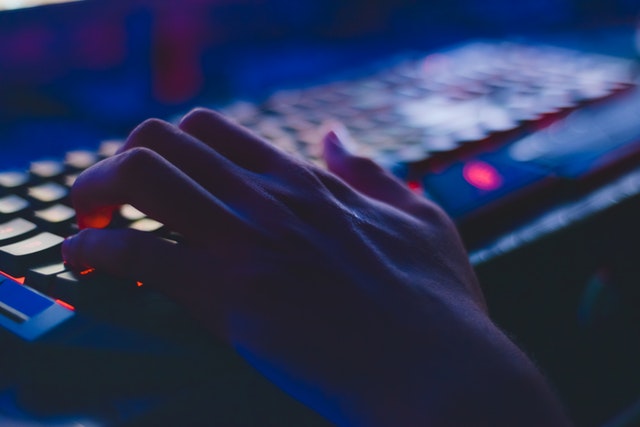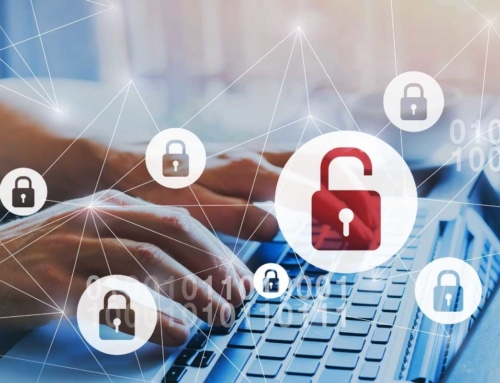“The further development of IoT and the release of 5G technology will create even more opportunities for hackers to commit cybercrimes and steal sensitive information from users.”
Cyber Security and the Role of the Internet
It ‘s safe to say that our world is now more connected than ever before. Cultural barriers and geographical boundaries that once separated us have been broken down with the power of the Internet and the free flow of information. New technologies such as the Internet of Things (IoT) are also making our daily lives more convenient and comfortable. With a mobile app, one can start their vehicle, lower the lighting in the living room, and adjust the thermostat. However, many of these modern conveniences come at a high cost to our personal privacy and our digital security. This is where Cyber Security comes into play.
Undoubtedly, famous literature on the twin topics of technology and surveillance, such as George Orwell ‘s “1984” and Ray Bradbury ‘s “Fahrenheit 451” have influenced our culture ‘s attitude towards technology. While many of us are leery of technologies that could potentially invade our privacy, we ‘ve also become narrow-sighted in our concerns. Both pop culture and daily debates at the dinner table often focus on unwanted government surveillance through technology. However, the truth is that our online data and the technology in our homes are just as likely to be hacked and abused by rogue cybercriminals as state-sponsored programs.
The Need for Cyber Security Rises
Cyber Attacks-
The old-fashioned bank robberies romanticized in movies like “Bonnie and Clyde” are largely a thing of the past, due to the relative ease of digital theft. Unlike a “hold ’em up” from the days of the wild west, hacking attempts can be made by criminals from across the globe. Oftentimes, these attacks are made in countries in which extradition agreements are not put in place or where criminals can ‘t be brought to justice. Cyber attacks are also often difficult to trace, as hackers use sophisticated methods of covering their tracks, such as creating a chain of devices to avoid detection.
According to McAfee, one of the world’s leading cyber-security authorities, cybercrime cost the global economy over $600 billion in 2017. This represents a $100 billion increase from 2014, in which there were an estimated $500 billion in losses. Statistics like these shouldn ‘t surprise us, as an increasing amount of financial transactions now take place digitally rather than physically. Additionally, the overall risk—and legal ramifications—of hacking a website is much lower than that of an armed robbery at a maximum-security bank.
Data Theft-
The term “data theft” is generally used to describe the illegal copying or transfer of sensitive information, such as credit card data, medical records, bank account numbers, and more. With the majority of your information (and mine) shared between e-commerce vendors, social networks, and any other digital service providers, the chances of having your identity stolen are quite high. In fact, having just one social media account can increase your chance of identity theft by 46%.
With vast databases of customer information, even retail giants are vulnerable to attacks. The most famous example in recent years would be the Target hacking scandal of 2013. In this hacking attempt, 40 million credit and debit card numbers and 70 million records of personal information were stolen. The scandal cost credit card unions over $200M just to reissue new cards, not including the fraudulent charges.
In 2017 alone, 16.7 million Americans fell victims to identity theft, which led to a total loss of over $17B.
IoT Represents a Threat to Consumers
While the Internet of Things offers a great deal of added convenience to our lives, it also opens up the devices inside our home to the risk of a cyber attack. Smart door locks, security cameras, and other home appliances connected to the Internet are all exposed to the threat of a cyber attack. In 2014, the first global IoT hacking attempt took place, in which cybercriminals hacked into 100,000 IoT devices—including refrigerators and smart TVs—to create a malicious network that spammed unsuspecting victims with over 750,000 phishing emails over a 2-week period.
Government agencies are also starting to recognize the importance of cyber security and the inherent dangers of IoT. In 2018, the FBI published a public service announcement regarding the very issue. “Cyber actors actively search for and compromise vulnerable Internet of Things devices for use as proxies or intermediaries for Internet requests to route malicious traffic for cyber-attacks and computer network exploitation. IoT devices, sometimes referred to as “smart” devices, are devices that communicate with the Internet to send or receive data. Examples of targeted IoT devices include: routers, wireless radios links, time clocks, audio/video streaming devices, Raspberry Pis, IP cameras, DVRs, satellite antenna equipment, smart garage door openers, and network-attached storage devices.”
Preparing Students for the Future
As if the stakes weren ‘t high enough already, Cyber Security is bound to grow in importance in the following decades. The further development of IoT and the release of 5G technology will create even more opportunities for hackers to commit cybercrimes and steal sensitive information from users. Therefore, just as technology and cybercrime advance in sophistication, so too do the cyber security professionals of tomorrow.
Unfortunately, the demand for cyber security professionals greatly outweighs the current supply, exemplifying the current tech skills gap. New research also shows that the situation is worsening and that the implications of such a shortage could be devastating to just about all industries. For these key reasons, Woz U has strategically selected Cyber Security as one of its three major disciplines, in addition to Software Development and Data Science.





